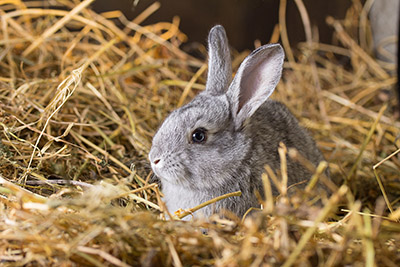A guide to understanding your rabbit’s behaviour

Rabbits are one of the nation’s most beloved pets, their sociable nature and undeniable cuteness makes them a perfect addition to a household. Generally, they enjoy interaction and are extremely rewarding for their owners, yet much like human’s, pets have their own unique personalities.
Rabbits are extremely expressive and display their feelings in dramatic actions that, fortunately for rabbit owners, makes identifying their behaviour easier. Their behaviour is typically easy to decode by observing their movements, sounds and more specifically, their ears! We have broken down some of the key behaviours that tell you what your rabbit is trying to say.
What your rabbit is telling you
Body Language
- Binkying– A sign of extreme happiness is your rabbit throwing themselves into the air whilst twisting and turning their body.
- Hoping/jumping/dancing – If your rabbit is frantically hopping around they are happy.
- Crouched down with tense muscles– Your rabbit is feeling anxious.
- Sat upright on back legs with paws up facing towards you – If your rabbit is displaying boxer behaviour it is safe to say that if he/she is in this position they are angry.
- Thumping –This is a natural reaction to fear or significant discomfort. If your rabbit is thumping persistently remove them from the environment and provide reassurance by comforting.
Ears
- Both ears up with inside facing forward- This position shows your rabbit is happy and in a sociable mood.
- Ears laid back –This accompanied by a stiff body position means they are ready to bite!
- Ears up with inside turned back – If you come across your rabbit’s ears in this position he/she is not in the friendliest of moods.
Sounds
- Teeth grinding – When a rabbit grinds their teeth it is a sign of discomfort.
- Grunting – Your rabbit is angry, feels threatened and is showing disapproval.
- Screaming – This is a sign of severe pain and/or fear.
Chewing
Chances are, every rabbit owner has experienced the frustrations of coming home to find a piece of furniture, wooden fences, cages or enclosures riddled with bite marks. But why do rabbits chew?
Rabbits teeth grow continuously, by chewing they prevent them from overgrowing. Chewing is a natural activity for rabbits and can be a source of enjoyment so it is recommended to give them things to chew on. Pinewood and cotton towels are amongst a few things commonly recommended. Speak to your vet for more advice.
Other things that could affect your rabbit’s behaviour
Pregnancy
An important factor that could change your rabbit’s behaviour is pregnancy. Rabbits are no exception to the changes females experience whilst pregnant, so if your rabbit seems moody or eating more than usual and gaining weight, there is a very good chance she is expecting.
When a rabbit becomes pregnant they may become aggressive and moody. This can be displayed through biting or not wanting to be handled. Around a week before giving birth she will begin to nest by creating a comfortable area in the enclosure where she will give birth. Closer to the end of the gestation period (usually around 32 days) they will pull their fur to line the nest for their kits. Recognising these changes in your pet’s behaviour early will help you support your pet in preparation for the new arrivals. For more information on caring for your rabbit through pregnancy and how to prepare, see here.
Spraying
Spraying is a rabbit’s way of marking their territory, which unfortunately can prove a nuisance and costly for their owners. Firstly, it is important to distinguish whether your rabbit is spraying or simply urinating inappropriately, urine that has been passed inappropriately tends to have a stronger smell. Making the differentiation is important as inappropriate urinating can be caused by something more serious. The marking of territory is common amongst all animals (particularly in males) and rabbits are no exception, they are extremely territorial. A good way of combating spraying is by dousing the problem areas in vinegar, although, the most effective way of preventing spraying is by spaying/neutering your rabbit.
Spaying
Though rabbits are exceptionally social animals, aggressive behaviour is common amongst unneutered rabbits. Furthermore, spaying is advised as around 80% of female rabbits encounter reproductive complications at some point. You may find that your rabbit’s behaviour after being spayed is still hostile; it can take months for their hormones to settle but behaviour such as growling and nipping will subside.
Changing behaviours
Once you’ve understood why your rabbit is displaying a behaviour, if necessary, you can find ways to help encourage new behaviours. Changing a rabbit’s behaviour is not as daunting as it sounds as rabbit are exceptionally receptive to behaviour training. Check out our blog post on training your rabbit.
How have you encouraged your rabbit to change past behaviours or adopt new ones? Let us know in the comments below...

